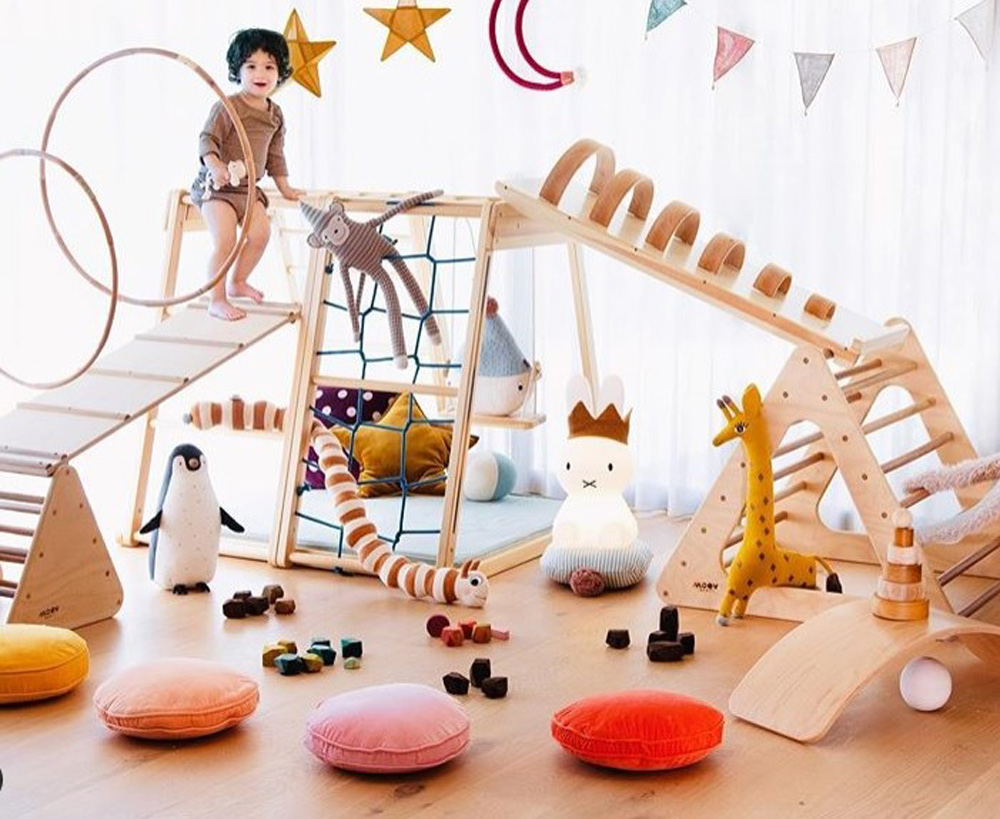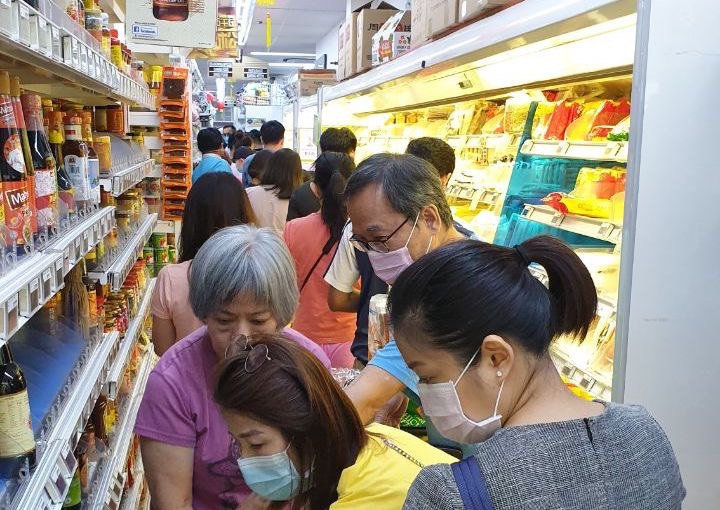By Jonathan Ang
Our previous articles have highlighted the massive changes to our society over the past 60 years. Within a single generation, community-based traditionalism is suddenly uprooted by postmodern liberalism that celebrates individualism. Gone are the days where civility and self-sacrifice were exemplified and respected. Instead, consumerism is in vogue and society is preoccupied with instant gratifications like getting the latest smartphone or following the latest fad on Instagram.
Although such a change originated in Western societies, the rest of the world is not spared from its influence. This is largely due to the influence of Western media that champions postmodern liberal values like religious indifference and alternative lifestyles. This is exacerbated by the fact that the key traditional institutions of family and religion are already in steep decline; they are no longer effective in buttressing the traditional society from its impending death spiral.
When religion and family crumble, society can only fall back on its socio-cultural institutions to prevent a collapse in morality. Unfortunately, all it took was half a century of postmodern liberalism to erode traditional socio-cultural values that were accumulated over the past millennia.
Ball vs Trump
The latest saga involving sports and media personality Lavar Ball offers a view on how far our society has sunk.
In November 2017, Lavar Ball’s son, LiAngelo Ball, was arrested with two of his UCLA basketball teammates for shoplifting during their team trip in China. They could face imprisonment in a Chinese jail for shoplifting a pair of Louis Vuitton sunglasses. Nevertheless, the trio were released with a fine after US President Trump interceded for them with the Chinese President Xi Jinping during his Asia trip.
The saga could have ended graciously after the trio apologised for their misdeeds and thanked President Trump for securing their release. Unfortunately, it erupted into an online dispute between President Trump and Lavar Ball when the elder Ball scorned Trump and disputed the assistance rendered by the president. President Trump was so incensed that he retorted that he should have left the trio in jail.
Mainstream society was appalled by Lavar Ball’s behaviour. True, Lavar Ball may be entitled to his own political views, but to disrespect someone after receiving his help simply reeks of pure ungratefulness. In a civilised society, it is only courteous of us to express our gratitude even when someone holds a door open, not to mention someone helping in such a big way.
Other than the public display of ingratitude, Lavar Ball also downplayed the crime committed by LiAngelo Ball by describing the act of shoplifting as “not a big deal”. Apparently, Lavar Ball did not feel that his son had brought shame to his family and country despite the younger Ball causing an international incident. Talk about bad parenting.
We should be alarmed at the declining level of morality in society, which is gradually eroded by self-entitlement. It is getting increasingly difficult for us to look into the mirror and admit that the fault lies with us. As in the case of the Lavar Ball saga, he cannot see that it was his son who erred in the first place. It is more convenient to pin the blame and anger on external parties, including the person who helped you.
The world would be a much better place if we stop focusing on our differences and treat each other with respect.
A Colder Society
Postmodern liberalism is not the only culprit for the decline of our society. With technological advancement, we are increasingly detached from our community and environment as we become more immersed in our own digital world.
Any anthropologist conducting a study on modern society would be amazed at how communication technologies like the smartphone are replacing good old human interaction. Emails and messaging technology have removed the need for face-to-face interaction. We are now spending less time talking to each other and this has resulted in a colder society that is self-centred and detached.
The tragedy involving Annie Ee, an intellectually disabled waitress, may be a sign that our society is not as cosy as we may like to think.
In December 2017, Tan Hui Zhen and her husband Pua Hak Chuan were jailed for causing grievous hurt to their tenant Annie Ee. Annie Ee succumbed to her injuries in 2015 at the age of 26 after she was tortured by the couple in their house for eight months.
Despite the prolonged abuse, Annie Ee treated her abusers as her immediate family and gave the bulk of her salary to her abusers. Till her death, Annie Ee did not blame her abusers. Instead, Annie Ee blamed herself for her predicament and she did not seek help for her plight.
Before her death, Annie Ee’s body was covered with bruises and injuries, which included fractured ribs and a ruptured stomach. The case caused an uproar in Singapore as many were horrified at the cruelty inflicted on an intellectually disabled person by the very people she trusted. In a matter of days, a petition was signed by tens of thousands of citizens demanding stifler punishment for the abusers.
It was subsequently revealed that Annie Ee’s neighbours and colleagues have noticed her bruises and injuries. When interviewed, some of them admitted that they were suspicious that something was amiss as Annie Ee had shown visible signs of abuse. This tragedy could have being avoided if someone had bothered to probe further or report the case.
Could this be a sign of increasing detachment in our society? Is competition in modern society turning us into apathetic individuals oblivious to the plight of the less privileged?
Rise of YOLO

Everybody loves an optimist. However, the reality is that the world we know is on a downward trajectory. We are now living in a world that pursues individual gratification and entitlement.
This is apparent in the rise of the YOLO culture, which became a buzzword to represent the lifestyle of the new generation. YOLO, which literally means “You Only Live Once”, was initially a term used to promote healthy risk-taking and living life to the fullest. The message recognises the value of life, and hence encourages us to step out of our comfort zones and make a difference with the limited amount of time we are given.
However, this message was eventually tainted by postmodern liberal values. It gradually evolved from its noble intent to become an excuse for millennials to live an irresponsible and self-centred lifestyle. By adopting a nihilist interpretation of this message, it suggests that we should do whatever we like in pursuit of short-term gratifications without any concern for future consequences. The goal is to enjoy now by kicking the can down the road.
Perhaps the YOLO mentality could be an explanation for many of the social ills seen in society. For example, despite the documented health dangers associated with recreational drug abuse, people still persist in their habit as it gives them the short-term enjoyment that they crave – never mind the long-term consequences involving addiction or permanent brain damage.

A 2017 Straits Times article, ‘Drug use among the young: Abusers getting more brazen’, noted the growing audacity of young people taking drugs openly nowadays: “Mr Robin Tay, programme manager at The New Charis Mission, which runs a halfway house, said: ‘It was very uncommon to hear of students doing drugs in school in the 1980s and 1990s, but I think there are more of such cases now. I think students have become more daring.’”
There is also another change that bespeaks the YOLO mentality. The same article wrote: “Unlike in the past, when drug abusers tended to be from lower-income and troubled families, more of today’s young drug abusers hail from middle and even upper middle-class families, with parents who have no history of drug abuse, those interviewed say.”
Financial indebtedness is also a problem. A 2016 Channel NewsAsia article titled ‘Flashy lifestyles hide hints of credit card woes’ mentioned “such a lifestyle has also been identified as the main reason young professionals tend to rack up unsecured debts, Credit Counselling Singapore (CCS) said”.
Why is financial indebtedness affecting the younger generation? The YOLO mentality encourages people to spend irresponsibly by maxing out their credit card. The same Channel NewsAsia article also cited “peer pressure”, which “might eventually lead to an unsustainable lifestyle” that “is further glamourised on social media platforms like Snapchat and Instagram”. When reality sinks in, it may be too late for them to reverse the damage done in moments of folly.
True, life is transient and we only live once. But this should not blind us to the fact that we still have to live with the consequences of our actions.
Swimming Against the Tide
Judging from the current trend, there is no way we can rollback the impact of postmodern liberal influences on our society.
However, all is not lost. Throughout history, traditional values have stood the test of time as they appeal to the very basis of human nature. Deep down, we all yearn to live in a compassionate and moral society that has its roots deep in traditional values. This is the reason why traditional values are still embraced by mainstream society despite their obvious decline.
Ultimately, we should not be overly pessimistic. Who knows, postmodern liberalism could be a fleeting fad that would just fade away on its own. Singapore’s National Youth Survey 2016 “shows that 65 percent of youth have engaged in at least one civic activity in the past 12 months. And 40 percent of them list helping the less fortunate and contributing to society among their top life goals”, according to a 2017 Straits Times article.
In the meantime, let us make a positive difference to our society by becoming a truer and kinder person who takes personal responsibility – because this is possibly the best thing we can do for the world we live in.
















